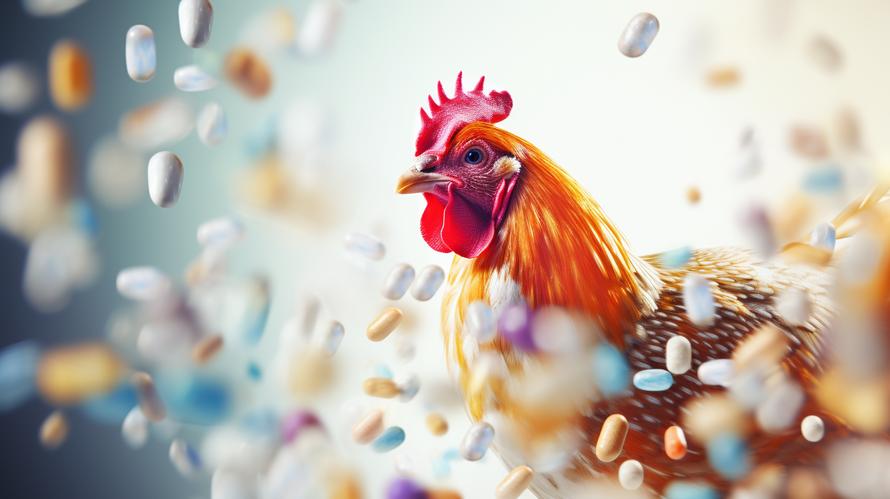When it comes to eating a healthy diet, careful consideration is often given to the food we eat. However, it’s just as important to think about what our food is consuming before it reaches our plates. Recent studies have raised concerns about supermarket chickens being fed substances such as arsenic, banned antibiotics, Benadryl, and caffeine, much of which could potentially end up in our daily meals.
While the agricultural industry assures consumers that the levels of these unwanted substances are too low to impact human health, it’s worth taking these claims with a grain of salt when considering the unexpected nature of some of the discoveries, such as Benadryl in our chicken drumsticks and wings.
Keeve E. Nachman, a researcher at Johns Hopkins, expressed his shock at the findings: “We were kind of floored. It’s unbelievable what we found.”
Initially, the tests on chickens were designed to look for antibiotics. What the researchers discovered was evidence of floroquinolones in the chickens – a type of broad-spectrum antibiotic used to treat serious bacterial infections in people, particularly those that have become resistant to older antibiotic drugs. This discovery was troubling as floroquinolones have been banned for use in U.S. poultry by the U.S. Food and Drug Administration (FDA) since 2005.
To determine what drugs chickens may have received before slaughter, the tests involved examining feather meal, a byproduct of poultry production made from poultry feathers.
David Love, one of the researchers, says, “The discovery of certain antibiotics in feather meal strongly suggests the continued use of these drugs, despite the ban put in place in 2005 by the FDA.” He explains that the public health community has long been frustrated with the FDA’s reluctance to address the issue of antibiotics being fed to food animals.
Nachman adds, “We strongly believe that the FDA should monitor what drugs are going into animal feed.” He has concerns about the ineffectiveness of the FDA’s new guidance documents that call for voluntary action from the industry. He points out that finding a drug in feather meal that was banned almost six years prior indicates the food animal production industry cannot be trusted to regulate itself.
The feather meal laboratory tests also revealed traces of acetaminophen (the active ingredient in Tylenol) and caffeine in the chickens. Chicken from China was found to contain ingredients linked to Prozac (an antidepressant).
Commenting on these findings, Rolf Halden, co-author of the study, notes, “This study reveals yet another pathway of unwanted human exposure to a surprisingly broad spectrum of prescription and over-the-counter drugs.”
These discoveries highlight the changes in the chicken industry as a result of modern industrial agriculture. Decades ago, chickens would be dropped off by trucks to butcher stores and processed individually before being sold to consumers. Today’s chickens are mass-produced, and there is little resemblance between the healthy, colorful birds of the past and the passive, white lumps that make up present-day flocks.
Given what we now know about the potential presence of chemicals and medications in conventionally produced chicken, it would be wise to opt for organic food instead. Choosing organic food can help minimize exposure to potentially harmful substances and promote a mindful, ethical approach to consuming animal products.
In conclusion, knowing what you’re eating extends beyond merely focusing on the ingredients on your plate. Being aware of what your food is consuming is essential for maintaining a healthy diet and lifestyle. Opting for organic food can help ensure that the choices you make positively impact both your health and the environment.



